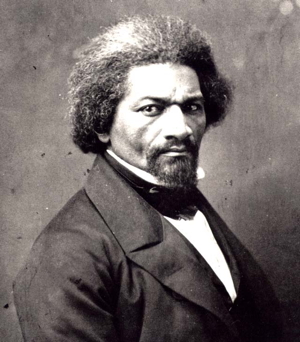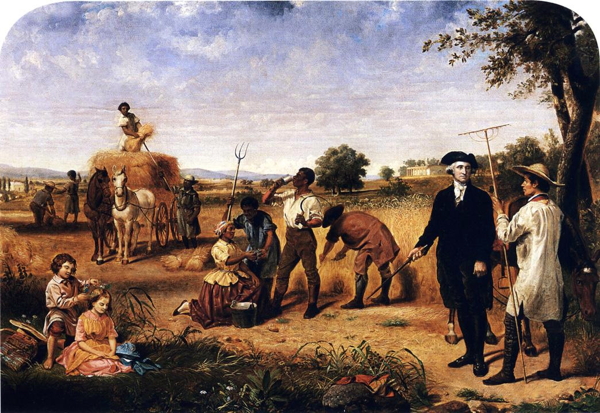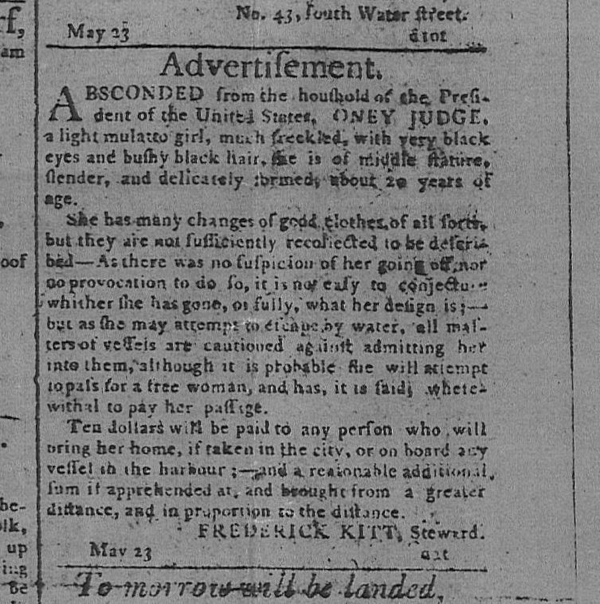A useful corrective to the unthinking patriotism usually on display on July 4th is to read Frederick Douglass’s great “July 5th Oration” which he gave in 1852. He asks his listeners the following important question and then gives a devastating answer to it:
“What, to the American slave, is your 4th of July? I answer; a day that reveals to him, more than all other days in the year, the gross injustice and cruelty to which lie is the constant victim. To him, your celebration is a sham; your boasted liberty, an unholy license; your national greatness, swelling vanity; your sounds of rejoicing are empty and heartless; your denunciations of tyrants, brass fronted impudence; your shouts of liberty and equality, hollow mockery; your prayers and hymns, your sermons and thanksgivings, with all your religious parade, and solemnity, are, to him, mere bombast, fraud, deception, impiety, and hypocrisy-a thin veil to cover up crimes which would disgrace a nation of savages. There is not a nation on the earth guilty of practices, more shocking and bloody, than are the people of these United States, at this very hour.” (p. 20)
Douglass does admit that in its rhetoric, in the philosophical ideas it articulates, “as it ought to be interpreted, the Constitution is a GLORIOUS LIBERTY DOCUMENT. Read its preamble, consider its purposes. Is slavery among them? Is it at the gateway? or is it in the temple? it is neither.” (p. 36)
Given the sad history of how the ideas of the Declaration of Independence were actually, and are now currently, being put into practice, one can only agree with his conclusion that “America is false to the past, false to the present, and solemnly binds herself to be false to the future.”
Source: Oration, Delivered in Corinthian Hall, Rochester, by Frederick Douglass, July 5th, 1852 (Rochester: Printed by Lee, Mann, and Co., American Building, 1852).
- first put online: 26 Oct. 2014; corrected: 6 July, 2015
- facsimile PDF and HTML version
Very few know, or want to know, that twelve American presidents owned slaves at some point in their lives and that eight of them owned slaves while serving as President (see list below). Thus, for 50 years during the pre-Civil War period a slave-owner was in the White House. It is also the case that although the slave trade had been abolished in Washington D.C. in 1850, slave owning was still permitted for another 15 years. This meant that the “great emancipator” Abraham Lincoln lived in the White House when it was still using slave labour as household help.
Presidents who owned slaves (in caps if they owned slaves while in office):
- GEORGE WASHINGTON (Pres. 1789-1797) (owned between 250-350 slaves)
- THOMAS JEFFERSON (1801-1809) (about 200)
- JAMES MADISON (1809-1817) (more than 100)
- JAMES MONROE (1817-1825) (about 75)
- ANDREW JACKSON (1829-1837) (fewer than 200)
- Martin Van Buren (1837-1841) (one)
- William Henry Harrison (1841-41) (eleven)
- JOHN TYLER (1845-1849) (about 70)
- JAMES POLK (1845-1849) (about 25)
- ZACHARY TAYLOR (1849-1850) (fewer than 150)
- Andrew Johnson (1865-1869) (probably eight)
- Ulysses S. Grant (1869-1877) (probably five)
Here is an interesting image of Washington the slave owner from 1851 – “Washington as Farmer at Mount Vernon”, 1851, part of a series on George Washington by Junius Brutus Stearns. Located at the Virginia Museum of Fine Arts.
And an advertisement placed in The Pennsylvania Gazette, Philadelphia, Pennsylvania, May 24, 1796, which offers a reward of $10 for the capture of one of his run-away slaves.
Source: Mary V. Thompson, “William Lee & Oney Judge: A Look at George Washington & Slavery ,” Journal of the American Revolution, June 19, 2014.
Another useful corrective for patriots is Jeffrey Rogers Hummel’s article “The Constitution as Counter-Revolution: A Tribute to the Anti-Federalists,” Free Life. The Journal of the Libertarian Alliance, Vol. 5 : No.4. (no date) PDF




Pingback: Some Links
Pingback: Some Links - Freedom's Floodgates